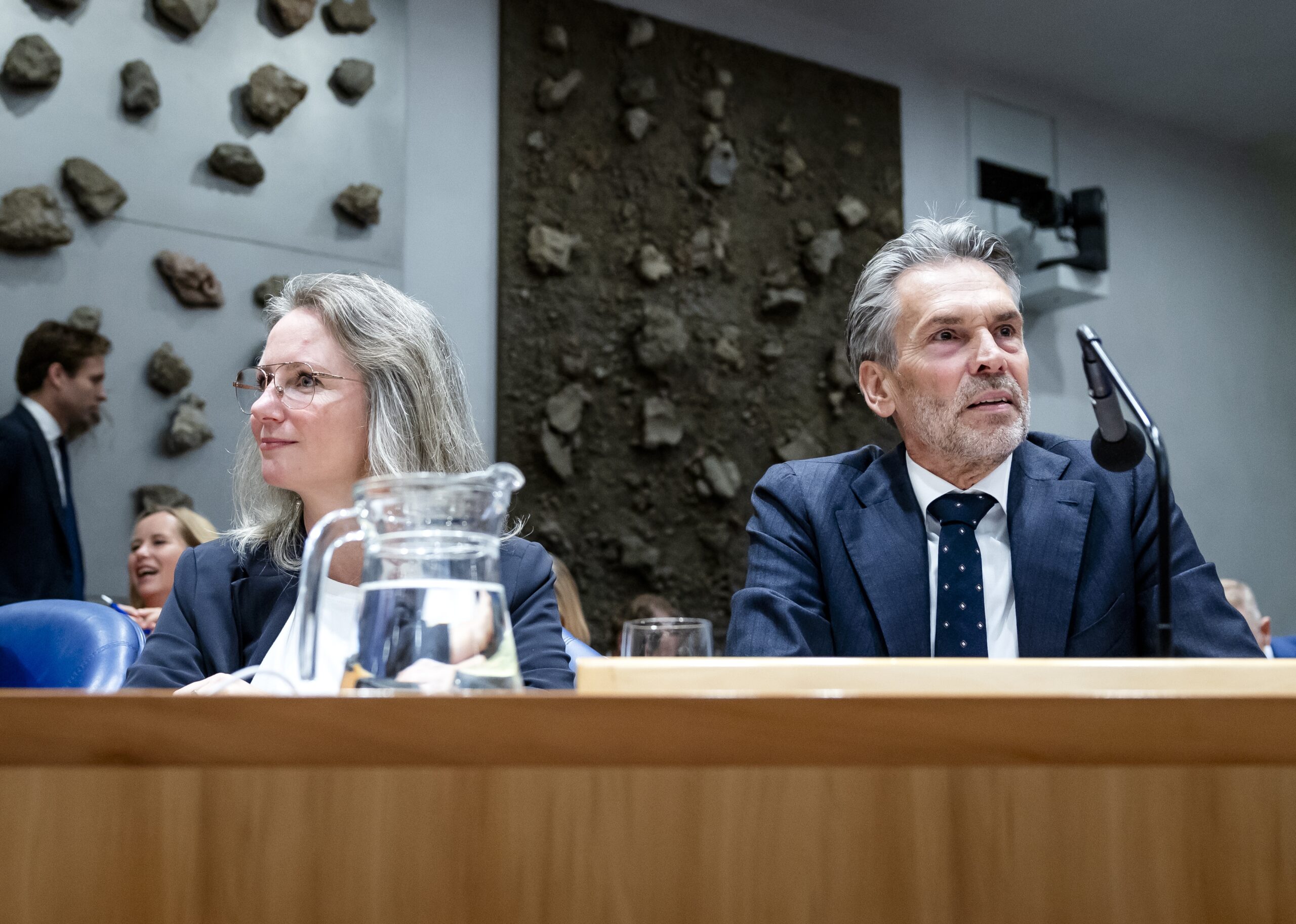Budget debate is first test of resilience for fragile coalition

The two-day budget debate that kicks off the Dutch parliamentary year is expected to be even more turbulent than usual as the new government faces criticism from both the opposition and its own ranks.
The build-up to Prinsjesdag, the state opening of parliament, was dominated by rows between the coalition parties over key issues such as migration and agriculture, while the left-wing opposition attacked proposed cuts to education and culture.
After Pieter Omtzigt, leader of the centre-right NSC party, took a back seat citing overwork, his replacement Nicolien van Vroonhoven immediately flew into a storm when she said her party would not support the cabinet’s migration plans if they were not approved by the Council of State.
Geert Wilders, leader of the far-right PVV, urged Van Vroonhoven to “think again” about the “massive asylum crisis which will not be solved by prematurely turning tail”. Dilan Yesilgöz of the VVD said her party would “not speculate in advance about what is possible.”
Both parties, along with NSC, are in the coalition that formed the government, but unlike in previous years their leaders are not sitting at the cabinet table.
Omtzigt argued that keeping the ministers at arm’s length from the parliamentary parties would give MPs more freedom to scrutinise the government’s plans, but it also makes the relationship between the coalition parties and the cabinet more fractious.
Devil in details
The cabinet’s legislation is based on a framework coalition agreement drawn up by the four parties, but it is up to ministers to fill in the details. And the row over Van Vroonhoven’s comments showed how the devil is likely to be in the parties’ interpretation of the details.
During the new government’s inaugural debate in July, Wilders attacked prime minister Dick Schoof as a “wet blanket” for not defending two PVV ministers against accusations of racism.
Wilders was also fiercely critical of Schoof during the prime minister’s recent visit to Ukraine, taking to social media site X to ask if he had “mentioned corruption over there or just brought money”.
Caroline van der Plas, leader of the farmers’ party BBB, said last week she would consider stepping down if the cabinet went ahead with plans to cut livestock numbers because the Netherlands is breaching European limits on manure.
The remarkable detail is that the minister responsible for the plan, Femke Wiersma, was appointed by the BBB, which emerged from the protest movement against the previous government’s buyout scheme for farmers.
Strict asylum policy
The budget debate is likely to be dominated by plans to for the “strictest asylum policy ever”, including a freeze on asylum applications, tighter rules for family reunions for refugees, faster removal procedures and a proposed opt-out from EU migration quotas.
Legal experts have questioned the basis of the cabinet’s plan to declare a crisis in the asylum system, since the problems are mainly caused by a shortage of accommodation rather than a surge in asylum seekers caused by a war, plague or natural disaster.
Frans Timmermans, leader of the largest opposition group GroenLinks-PvdA, has insisted his party is not against stricter asylum rules “as long as you stick to the law”.
But he argued the right-wing government will make the problem worse by abolishing the so-called “spreading law”, which requires each local authority to accommodate a proportionate number of refugees to ease the bottleneck.
“The facts are that the number of asylum applications is going down and has been doing so for a while,” he said.
Budget cuts
Timmermans is also expected to criticise the cabinet’s €1.9 billion of budget cuts, including €430 million for education, culture, science and sport. The culture and sport sector has also lobbied hard against the cuts, with the latter arguing that they will undermine the Netherlands’ recent success at the Olympics.
GL-PvdA and the Socialist Party (SP) also say the government’s anti-poverty strategy did not go far enough and have contrasted it with the “sweeteners” for businesses to encourage investment in public services such as healthcare.
They will also press the cabinet not to raise VAT on books, theatre tickets and sports club memberships, arguing that it will set progress in education back.
Right-wing opposition parties including the Christian Democrats (CDA) are critical of some of the cuts too, such as the abolition of the youth social inclusion scheme maatschappelijke diensttijd.
They will hope to win over the support of Van Vroonhoven, who recently said “input from society is important” for NSC.
Many legislative areas still have to be fleshed out, such as a programme of cuts in healthcare and proposed labour market reforms, including plans to strengthen protection for exploited migrant workers.
The budget debate will be a first test of the cabinet’s ability to stand up to intense scrutiny from both coalition and opposition – and of whether the parties in parliament can form alliances to block plans that they oppose.
Thank you for donating to DutchNews.nl.
We could not provide the Dutch News service, and keep it free of charge, without the generous support of our readers. Your donations allow us to report on issues you tell us matter, and provide you with a summary of the most important Dutch news each day.
Make a donation